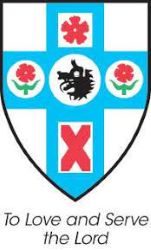Context for joining Behaviour Hubs
St Edmund’s Catholic Academy is a very popular 11-19 comprehensive school in Wolverhampton, serving all geographic and demographic areas of the city. The academy is part of the St Francis & St Clare’s Multi Academy Company serving all of the Catholic Schools in Wolverhampton as well as 2 from the Staffordshire borders.
St Edmund’s received a 2-day section 8 inspection (26th/27th November 2019) and was judged to be GOOD.
The population of St Edmund’s is diverse, multi-cultural and multi faith with 39 languages spoken within the community. The current number on roll is 1147 with a growth from 150 to 200 pupils in the current year 7 and 9 and 10 to support the local need. The school has now formally increased its PAN to 200 moving forward. 143 students attended sixth form in 20/21.
Other significant contextual data for 20/21:
- Pupil Premium students represent 40.7% of our student cohort (Y7-11) (National Average is 27.7%).
- Minority Ethnic groups represent 72.0% of our student cohort (National Average is 31.8%)
- The school has a deprivation factor of 0.28 which is above the national average of 0.20
- EAL students represent 30.1% of our student cohort significantly above the national average of 16.9%
- SEN students represent 16.1% of our student cohort which is above the national average of 10.8%
- SEN with EHC represent 1.6 % of our student cohort in line with a national average of 1.7%
- Stability of student cohort sits at 92.5% in line with national 91.6%
- Number of FTE = 38 Number of FTE (disadvantaged students) = 23
- Number of PEX = 2 Number of PEX (disadvantaged students) = 1
Currently, the contextual factors most affecting the Academy are:
- Impact of COVID 19 on both academic progress and social and emotional wellbeing of student cohort
- Increasing PAN to 200 to support the birth rate projections from the local authority
- Increase in students requiring daily emotional/mental health support
- Increase in students and families requiring other agency support
- The Wolverhampton safeguarding contextual priority: ‘Tackling Interpersonal Violence and Abuse Strategy 2019-2022’ (including Violence Against Women and Girls). Both the local and national levels acknowledge the gendered nature of domestic and sexual violence, towards mainly female victims.
As a result of our school context:
- We work collaboratively with the LA and local secondary schools to ensure a remote learning enhanced curriculum is constantly developed and reviewed
- We are working closely with the LA, the Diocese and the MAC to ensure the increase in pupil numbers does not have a negative impact on progress/ achievement or the Catholic Life of the academy
- We work collaboratively with the local authority fair access panel, as well as a range of agencies and support services on a daily basis
- We are proactive members of the Wolverhampton Sixth Form Consortium to ensure all students can access a broad range of post 16 provision
- Plan carefully to ensure staffing, curriculum, spiritual and personal development at St Edmund’s meets the needs of our student cohort.
Behaviour challenges and goals
To embed a culture of values and expectations that is agreed and understood by all stakeholders and consistently upheld across the academy.
- Staff resistant to change/feel that behaviour is the responsibility of the senior leadership team
- Post COVID, increasing levels of SEMH in students, driving poor behaviour
- Inconsistent approaches to values and expectations across the staff body, leading to frustration and defiance in students
- Parental challenge regarding the academy’s authority to make decisions regarding poor behaviour choices and associated sanctions.
Solutions to behaviour challenges
Staff CPD – all staff voice was garnered regarding the formulation of a behaviour curriculum that would be delivered in taught sessions to students, practiced regularly, with structured sanctions and rewards, as appropriate.
The ‘St Ed’s Playbook’ website was created – this explicitly details what is expected of students in the range of situations they are in during the day (movement between lessons, social time, in dining room etc.).
To make the Playbook easily accessible, the key points have been condensed into a one-page poster, outlining expectations for staff and students. These are visible in all classrooms. This has provided a frame of reference when having conversations with students regarding behaviour choices.
The Behaviour Hubs programme virtual modules gave advice, case studies and practical strategies on a range of issues in school that impact on student behaviour. This helped us to gain a rigorous understanding of why we do what we do, with regards to values and expectations.
Impact on behaviour
- 71% of students say that behaviour in the academy is acceptable or better
- 75% of students say that they know how the academy expects them to behave and why
- 77% of staff feel that the behaviour reset has had a positive impact on student behaviour at social times and in the corridor
- 83% of staff feel that the introduction of the behaviour reset has been well planned and implemented.
Next steps on your behaviour journey
Students do not feel that good behaviour choices are celebrated sufficiently. We will be redesigning the rewards programme, with input from the student council.
Students still feel that there are inconsistent approaches to values and expectations from some staff and that not everyone is treated fairly. INSET days for the next academic year will focus on use of scripts and building positive relationships.

